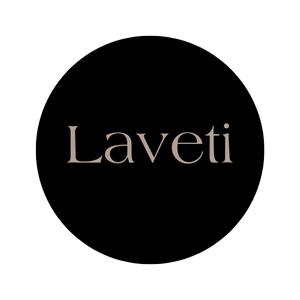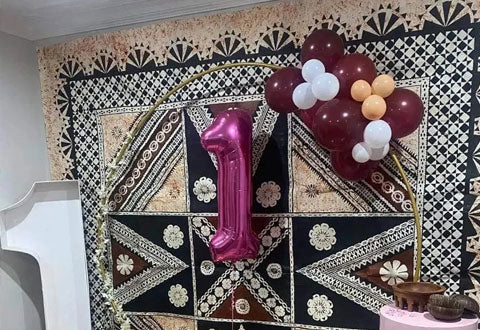VEIBATIKI - Fijian Traditional Relationships
Source: Simione Sevudredre
Fiji is divided into 14 provinces today. These provinces were created during Fiji’s colonial history (from 1874 – 1970). Prior the redrawing of provincial boundaries, old Viti comprised many independent vanua or chiefdoms. There were various levels of hierarchy among the chiefdoms where one chief of a chiefdom may play a subservient role to another chiefdom somewhere else. Villages also of olden Viti were located in strategic locations like hill tops, mountain passes and river estuaries because of constant warring. The names of most clans and villages in Fiji today are in fact a crossing over of these old names to their current locations.
Prior to Christianity and colonization, chiefdoms across Fiji had migrated, settled and relocated owing to many reasons. As chiefdoms moved, morphed and diminished, traditional ways of relating to one another evolved within chiefdoms and with others outside it.
One very fist relationship was when strangers were once accepted and made into chiefs. In the original system of things, becoming a chief was very flexible. According to oral traditions, strangers from outside a chiefdom were sought after or anticipated by the aboriginal clan or home people. When such a person arrived, it is said to be fated and the home people install the stranger to become their chief and be the vessel or avatar of the chiefdom’s deity. This process gave rise to traditional installation rituals which include drinking a cup of kava imbued with mana or spiritual efficacy, isolation for a number of days with elders orientating the new chief on vanua matters, traditional baptismal bath and the handing over of traditional regalia of chieftaincy.
As part of the new chief’s sacredness in being the avatar of the spiritual deity, pledges and oaths are made for the aboriginal or home people the following roles:
- Speak to and on the chief’s behalf within (matanivanua/vaka/matavule)
- Speak on behalf of the chief on vanua matters outside the chiefdom (mataki/takala)
- Advise on spiritual matters (bete)
- Advise on political and vanua matters (sauturaga)
- Keepers of the waters (gonedau)
- Keepers of the forests and constructions (mataisau)
- Personal handlers only to the chief in life and in death (ligatabu/bouta)
- Traditional comptroller of the land’s wealth (Tuirara)
- Entertainers/jesters (daunivucu)
- Protectors of the chief and the land’s frontiers (bati)
The relationship between a chief and his warriors or protectors is one which is given extra attention for in it lies the continuity of the chief and the lands under him. Extra efforts and considerations are carried out to ensure the continuing goodwill between warriors and a chief. These efforts became the protocols of food taboos and a high language of respect between the two. The taboos are mostly in food – traditional delicacies and dishes reserved for a chief are taboo to a chief in the presence of his warriors. Instead these are offered to the warriors. In true reciprocity, the warriors then extend the taboo towards the chief in the offering of their traditional delicacies.
The delicacies differ throughout Fiji but the principle remains. It is a known tradition that warrior chiefdoms and chiefs are by nature very temperamental and fierce protectors of the status quo. It is also known that in the days of old, warrior chiefdoms were highly sought after and a warrior chiefdom can actually pledge allegiance to two chiefs. It is not unknown for warrior chiefs and chiefdoms to play two chiefs and side with the more influential one.
The food taboos between chiefs and warrior is a relationship called ‘veibatiki’. The derivative word is ‘bati’ which means teeth and also edge. In the warrior sense, the ‘bati’ are guards and protectors of the edge or frontier of the land and also the chief’s immediate place. Even until today, traditional warrior villages are still found within a few hours travel of their overlord chief’s village.
The food taboo is taken to another level in very old chiefdoms like that in the ancient Verata kingdom that once spanned most of eastern mainland Vitilevu. The warrior states and the chiefly states have a special coded address for one another. This coded address and behaviour places heavy emphasis on deep reverential tones and respectful silences in each other’s presence. The respectful silence is the traditional way of ensuring the sacro-sacredness relationship and not to trivialize or treat it flippantly. In fact, the veibatiki or chief-warrior relationship is also said to be one of veitabuki – a mutual taboo relationship. Taboo in the sense that all trivial, flippant attitudes and speech are suspended when these two meet.
Such was the importance of the warriors from a chief’s perspective for if a chief is attacked, not only his lands are taken. In addition to being killed, his deity, women, children and everything that was in his domain exists no more.
There are known traditions in Fiji of many chiefdoms being subsumed under a conqueror where the conquered has relinquished everything about their existence.
Fig. 1 – a very old photo showing traditional warrior lords

Fig. 2 Traditional warriors standing guard to escort a chief to the traditional space for installation (2008 installation of Taukei Nawaluvu, Naitasiri, Vitilevu)



